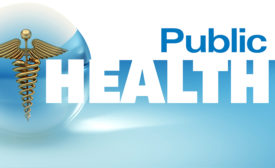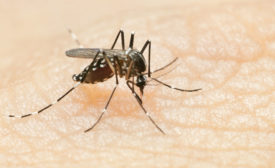Home » pregnancy risks
Articles Tagged with ''pregnancy risks''
Zika infections increasing rapidly in Puerto Rico
Widespread Zika infections warrant urgent action to protect pregnant women
August 2, 2016
NIH to study pregnant women in areas affected by Zika virus
International effort to enroll approximately 10,000 women
July 8, 2016
Become a Leader in Safety Culture
Build your knowledge with ISHN, covering key safety, health and industrial hygiene news, products, and trends.
JOIN TODAYCopyright ©2025. All Rights Reserved BNP Media.
Design, CMS, Hosting & Web Development :: ePublishing






